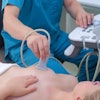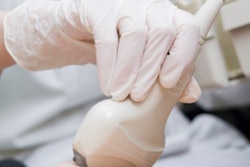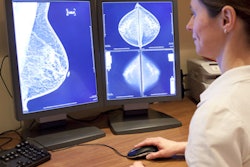Dear AuntMinnie Member,
A new study published this week is confirming what everyone in radiology already knows but for some reason needs to be repeated -- that annual mammography screening sharply reduces deaths from breast cancer.
In a study published in Cancer on August 21, researchers compared the mortality reduction of several breast screening strategies, including annual mammography starting at age 40, less frequent screening starting at age 45, and biennial screening starting at age 50.
Their conclusion? Starting screening at age 40 and continuing on an annual basis produced the biggest mortality reduction from breast cancer, at 39.6%. What's more, more frequent screening did better in other screening performance metrics, such as life-years gained and the number needed to screen to avert one cancer death.
Will the study affect the debate over breast screening? Most likely not, given the entrenched attitudes on both sides. But it is another point in favor of those who advocate more aggressive screening. Read more by clicking here, or visit our Women's Imaging Community at women.auntminnie.com.
Thyroid cancer overdiagnosis?
One of the downsides of any screening tool is overdiagnosis -- the detection of tumors that would never pose a risk to individuals during their lifetime. It's a point of contention in mammography, and it's also an issue with another imaging application, ultrasound for thyroid cancer.
Canadian researchers found that in recent years, the incidence of thyroid cancer has "skyrocketed" in the country, despite stable mortality rates. In addition, thyroid cancer incidence rates varied dramatically in certain provinces of the country, particularly among middle-aged women.
The researchers found a connection between the use of imaging, such as ultrasound, MRI, and CT, and the spiking incidence rates, which is a sure sign of overdiagnosis, they believe. Read more by clicking here, or visit our Ultrasound Community at ultrasound.auntminnie.com.
Developing deep-learning tools
Deep learning and artificial intelligence (AI) are all the rage in radiology right now, leading many investigators and institutions to look into whether and how they can create their own algorithms. Fortunately, the Society for Imaging Informatics in Medicine recently sponsored a webinar on how to get started. Read all about it by clicking here for a story in our Artificial Intelligence Community.
While you're in the community, check out this article on a new AI algorithm that can predict whether people will develop dementia -- years before symptoms appear. These stories and more can be found at ai.auntminnie.com.



















